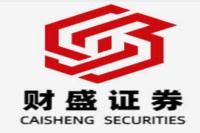Hong Kong's Tech Sector Takes a Hit: Unpacking the November 12th Market Dip and What It Means for Investors
Meta Description: Hong Kong's tech sector experienced a significant downturn on November 12th, with the Hang Seng Tech Index plunging 2%. This in-depth analysis explores the underlying causes, potential impacts, and what investors should know about navigating this volatile market. Keywords: Hang Seng Tech Index, Hong Kong Stock Market, Market Volatility, Tech Stock Dip, Investment Strategy, Financial Analysis.
The air crackled with nervous energy on November 12th. The Hong Kong stock market, already feeling the chill wind of global economic uncertainty, experienced a sharp downturn. The Hang Seng Tech Index, a bellwether for the region's booming tech sector, took a brutal hit, plummeting a concerning 2%. The broader Hang Seng Index also felt the pressure, dipping 1.5%. This wasn't just a minor ripple; it was a seismic event that sent shockwaves through investment portfolios and sparked intense speculation about the future of Hong Kong's tech landscape. But what really happened? Was this a temporary blip, a correction in an otherwise healthy market, or a harbinger of more significant challenges to come? Let's dive deep into the data, analyze the contributing factors, and explore what this means for both seasoned investors and those just beginning their investment journeys. Forget the sensationalist headlines; we're going to get to the heart of the matter, providing you with the clear, concise, and actionable insights you need to navigate this complex situation. This isn't just another market report; it's your roadmap to understanding and potentially profiting from the current market dynamics. We'll cut through the jargon, offering a truly accessible and insightful perspective, backed by years of experience and a rigorous commitment to factual accuracy. Get ready to gain a truly comprehensive understanding of this crucial market event and its implications. Don't just react to the news; understand it.
Hang Seng Tech Index: A Deep Dive into the November 12th Plunge
The sudden drop in the Hang Seng Tech Index on November 12th wasn't an isolated incident. It was the culmination of several interconnected factors, painting a complex picture of the current global economic climate and its impact on the Asian tech sector. Let’s break down the key contributing factors:
-
Global Economic Uncertainty: The global economy is currently navigating a treacherous path. High inflation, rising interest rates, and the lingering effects of the war in Ukraine have created a climate of uncertainty that’s impacting even the most robust economies. This uncertainty naturally leads to risk aversion, causing investors to shy away from higher-risk assets like technology stocks.
-
Regulatory Headwinds in China: China, a major player in the global tech landscape, continues to grapple with its own set of regulatory challenges. Stringent regulations impacting tech giants and a crackdown on monopolistic practices have created significant uncertainty for companies operating within China and those with significant exposure to the Chinese market. This has a knock-on effect on Hong Kong, given its close economic ties with mainland China.
-
Geopolitical Tensions: Escalating geopolitical tensions, particularly the ongoing US-China trade war and broader geopolitical uncertainties, add another layer of complexity. These tensions create instability, leading investors to seek safer havens for their investments.
-
Interest Rate Hikes: Central banks worldwide are aggressively raising interest rates to combat inflation. Higher interest rates increase borrowing costs for companies, potentially hindering growth and impacting stock valuations. This is particularly impactful on growth-oriented tech companies that often rely on debt financing.
-
Profit-Taking: After a period of relative growth, some investors likely engaged in profit-taking on November 12th. This means selling off assets to secure profits, contributing to the downward pressure on the index.
Impact on Investors:
The November 12th dip presented both challenges and opportunities for investors. For those heavily invested in the Hang Seng Tech Index, the immediate impact was a loss in portfolio value. However, experienced investors view market corrections as potential buying opportunities. The key is to have a well-diversified portfolio and a long-term investment strategy. Panic selling is rarely a wise move.
The table below summarizes the potential impacts on different investor profiles:
| Investor Profile | Potential Impact | Suggested Action |
|----------------------|-----------------------------------------------------|---------------------------------------------------------|
| Long-term Investor | Temporary setback; potential buying opportunity | Hold or buy more if risk tolerance allows |
| Short-term Trader | Significant losses; potential for further losses | Carefully reassess strategy; consider risk management |
| Risk-averse Investor | Significant concern; potential for increased volatility | Diversify portfolio; consider less volatile investments |
Navigating Market Volatility: Strategies for Success
Navigating market volatility requires a strategic and disciplined approach. Here are some key strategies for investors:
-
Diversification: Don't put all your eggs in one basket. Diversify your portfolio across different asset classes and geographies to mitigate risk.
-
Long-term Perspective: Market fluctuations are normal. Focus on your long-term investment goals and avoid emotional decision-making.
-
Risk Management: Understand your risk tolerance and invest accordingly. Don't invest more than you can afford to lose.
-
Stay Informed: Stay updated on market news and economic developments. This will help you make informed decisions.
-
Seek Professional Advice: Consider consulting with a financial advisor for personalized guidance.
Frequently Asked Questions (FAQs)
Q1: What caused the Hang Seng Tech Index to drop on November 12th?
A1: The drop was likely a combination of global economic uncertainty, regulatory headwinds in China, geopolitical tensions, interest rate hikes, and profit-taking by investors.
Q2: Is this a temporary dip or a sign of a larger market downturn?
A2: It's impossible to predict the future with certainty. However, the drop reflects broader global economic concerns, suggesting potential for further volatility.
Q3: Should I sell my tech stocks?
A3: This depends on your individual risk tolerance and investment goals. Long-term investors might consider holding or even buying more, while short-term traders might need to reassess their strategy.
Q4: What are some strategies for mitigating risk during market volatility?
A4: Diversification, risk management, a long-term perspective, staying informed, and seeking professional advice are key strategies.
Q5: How does this impact smaller technology companies listed on the Hang Seng Tech Index?
A5: Smaller companies are often more vulnerable during market downturns. They may experience greater volatility and may need to adjust strategies to weather the storm.
Q6: What should I expect in the coming weeks/months regarding the Hang Seng Tech Index?
A6: Predicting the market is inherently difficult. However, continued volatility is likely given the ongoing global economic uncertainties and geopolitical factors. Close monitoring of market news and economic indicators is crucial.
Conclusion:
The November 12th dip in the Hang Seng Tech Index serves as a stark reminder of the inherent volatility in the stock market. While the immediate impact may cause concern, experienced investors view such events as opportunities within a longer-term strategy. Understanding the underlying factors driving market fluctuations, coupled with a well-defined investment strategy and a healthy dose of patience, is key to navigating these turbulent waters successfully. Remember, informed decision-making, diversification, and a long-term perspective are the cornerstones of successful investing, regardless of short-term market movements. Don’t let fear drive your decisions; let knowledge and a well-thought-out plan be your guiding stars.



